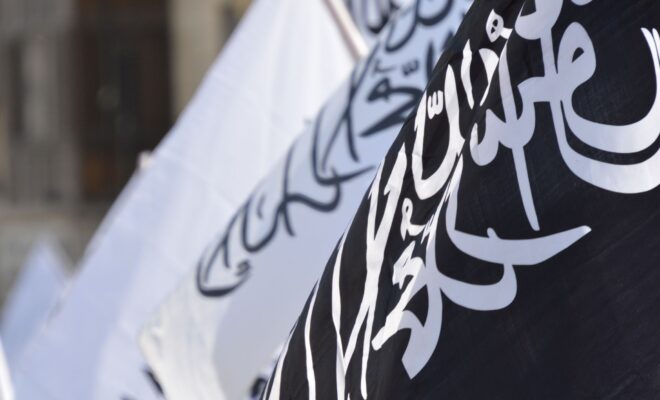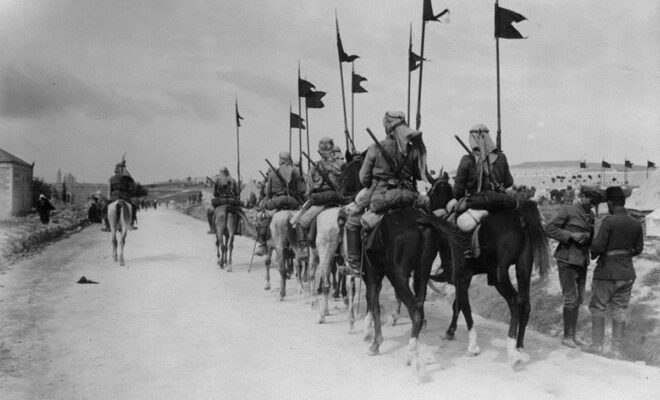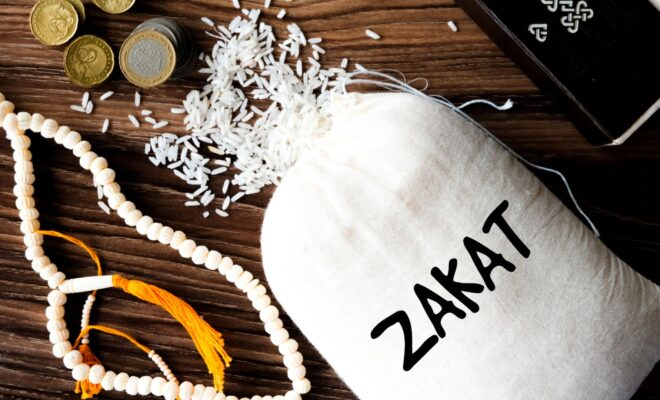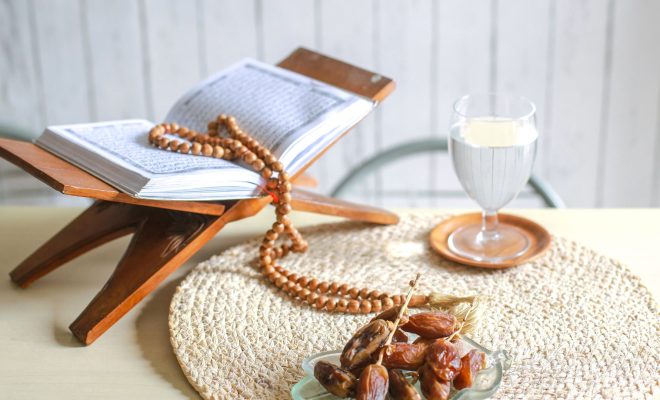Stances of Izzah (Honour) in a Time When ‘Izzah’ Prevailed

Umar ibn Al-Khattab, may Allah be pleased with him, said:
“We are a people whom Allah has honored with Islam, so whenever we seek honor through anything other than Islam, Allah humiliates us.”
In another narration attributed to him, he said:
“We are a people whom Allah has honored with Islam, so we do not seek a substitute other than Allah.”
Let us remember some of the brave stances that the Prophet (SAW) took, along with his companions. This is an important reminder for us in a time where izzah (honourable) stances are seldom seen and submitting to humiliation by submitting to ruling systems which are based on other than Islam, and personal benefit has become the measure for what should be done.
The stance of the Prophet Muhammad, peace be upon him, with Abu Talib:
Quraysh came to Abu Talib and said, “O Abu Talib, your nephew comes to us in our Kaaba and calls us in a way that hurts us. If you see fit, stop him from doing so.” Abu Talib said to Aqil, the cousin of the Messenger of Allah, peace be upon him, “O Aqil, intercede for me with your cousin.” Aqil went out and searched for him until he found him, and then he took him to Abu Talib. Abu Talib said to him, “O son of my brother, by Allah, I did not know that you would be disobedient to me. Your people claim that you come to them in their Kaaba and call them, causing them harm. I think you should stop doing that.” The Messenger of Allah, peace be upon him, raised his gaze to the sky and said, “By Allah, I am not capable of leaving what I have been sent with to the extent that any one of them would be ignited by this sun with a spark of fire.” Abu Talib said, “By Allah, he has never lied. Go, you are on the right path.”
The stance of Umm Habiba, may Allah be pleased with her, with Abu Sufyan before his conversion to Islam:
Abu Sufyan entered the presence of his daughter, Umm Habiba, may Allah be pleased with her. When he went to sit on the bedding of the Messenger of Allah, peace be upon him, she folded it up, preventing him from sitting on it. He said, “O my daughter, are you preventing me from sitting on this bedding?” Or is it because of me?” She replied, “No, it is the bedding of the Messenger of Allah, peace be upon him, and you are an impure polytheist.” He said, “O my daughter, Indeed you have been hit with evil!”
The stance of Sa’d ibn Muadh, may Allah be pleased with him, with the Prophet Muhammad, peace be upon him, on the day of the Battle of the Trench:
When the people faced severe hardship on the day of the Battle of the Trench, the Messenger of Allah, peace be upon him, sent ‘Uyaynah ibn Hisn and Al-Harith ibn Awf Al-Murri, who were leaders of the Ghatafan tribe, with one-third of the dates of Madinah, on the condition that they would return with those who were with them, leaving the Prophet and his companions alone. They reached a peaceful settlement with them, where they wrote a treaty.
However, the testimony was not given, nor was the final decision of the settlement made, except through negotiations. When the Messenger of Allah, peace be upon him, intended to implement the agreement, he sent them to Sa’dain (ibn Muadh and ibn Ubada), informing them of the situation and consulting with them.
They said, “O Messenger of Allah, is it a matter you love, and if so, we will follow it? Or is it a command from Allah that we must carry out? Or is it something you do for our sake?” He replied, “No, rather it is something I do for your sake. By Allah, I only do this because I have seen the Arabs abandoning you from all sides, like wolves circling their prey.
So, I wanted to remove you from their aggression to another matter.” Sa’d ibn Muadh, may Allah be pleased with him, said to him, “O Messenger of Allah, we and these people used to be upon polytheism, worshipping idols. We did not worship Allah nor recognize Him, and they only desired to eat from our dates through trade or agreement. So now, when Allah has honored us with Islam, guided us to it, and dignified us through you, shall we give them our wealth? We have no need for that. By Allah, we will only give them the sword until Allah judges between us and them.”
The Prophet, peace be upon him, responded, “You and that,” indicating his approval. Sa’d ibn Muadh, may Allah be pleased with him, took the treaty and erased the contents of the writing, then he said, “Let them exert their efforts against us.”
The stance of Umar ibn Al-Khattab, may Allah be pleased with him, with Abu Ubaidah, may Allah be pleased with him: Tariq ibn Shihab narrated:
Umar ibn Al-Khattab, may Allah be pleased with him, went to Sham (Greater Syria) and Abu Ubaidah was with him. They came across a difficult path, and Umar was riding a camel. He dismounted and took off his shoes, placing them on his shoulders, then he took hold of the camel’s reins and crossed the difficult path with it.
Abu Ubaidah, may Allah be pleased with him, said, “O Amir al-Mu’minin (Commander of the Believers), are you doing this? Taking off your shoes, placing them on your shoulders, holding the reins of your camel, and crossing the difficult path with it? It pleases me that the people of the city see you.” Umar, may Allah be pleased with him, replied, “Oh! If anyone other than you, Abu Ubaidah, had said this, I would have made it a punishment for a nation of Muhammad, peace be upon him. We were indeed a humiliated people, and Allah honored us with Islam. No matter how much we seek honor through means other than what Allah honored us with, Allah will humiliate us.”
The stance of Saad ibn Abi Waqqas, may Allah be pleased with him, with his mother:
When Saad embraced Islam and his mother learned about his conversion, she became furious and approached him saying, “O Saad, what is this religion that you have embraced, which has turned you away from the religion of your mother and father?
By Allah, you will abandon your new religion, or I will neither eat nor drink until I die, and your heart will break with grief for me, and you will be consumed by regret for the action you have taken, and people will forever reproach you for it.” Saad, may Allah be pleased with him, replied, “Please, mother, do not do this. I will not abandon my religion for anything”.
However, she persisted in her vow, refraining from eating or drinking for several days. Her body weakened, her bones grew feeble, and her strength diminished. Saad, may Allah be pleased with him, would visit her hour after hour, pleading with her to consume some food or a small amount of drink, but she adamantly refused, demonstrating the utmost stubbornness, and swore not to eat or drink until she died or until Saad renounced his religion.
Saad, may Allah be pleased with him, said, “O mother, my love for you is profound, but my love for Allah and His Messenger is even greater. By Allah, even if you had a thousand lives, and each life departed from you in succession, I would not abandon this religion for anything.”
When she witnessed Saad’s resolute determination, she yielded to his request and reluctantly ate and drank, albeit against her will, out of respect for him.
The stance of Abdullah ibn Mas’ood, may Allah be pleased with him, when he recited the Qur’an aloud:
One day, the companions of the Messenger of Allah gathered in Mecca, and they were a small and oppressed group. They said, “By Allah, we have never heard Quraysh recite the Qur’an aloud. Who among us can recite it to them?” Abdullah ibn Mas’ood, may Allah be pleased with him, said, “I can recite it to them.”
They replied, “We fear for you because we want a man who has a clan to protect him and prevent harm from befalling him if they retaliate against him.” Abdullah said, “Leave me, for Allah will protect and safeguard me. “He then went to the mosque until he reached the Station of Abraham during the forenoon prayer, while Quraysh sat around the Kaaba.
He stood at the Station and recited, “(Ar-Rahman) The Most Merciful. Taught the Qur’an. Created man. Taught him eloquence.)” He continued reciting, and Quraysh observed him and said, “What did Ibn Umm Abd say? Woe to him! He is only reciting some of what Muhammad brought.”
They approached him, struck his face, and he continued reciting until he completed what Allah willed for him to recite. He then went back to his companions with blood flowing from his face. They said to him, “This is what we feared for you.” He responded, “By Allah, the enemies of Allah are less significant in my eyes than them now. If you wish, I will confront them with the same tomorrow.” They said, “No, it is enough. You have made them hear what they dislike.”









